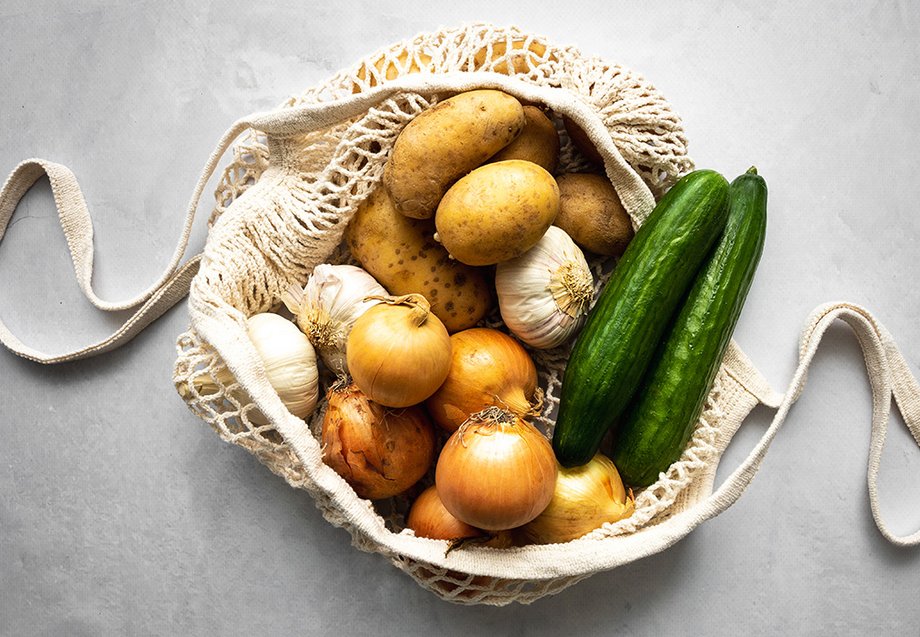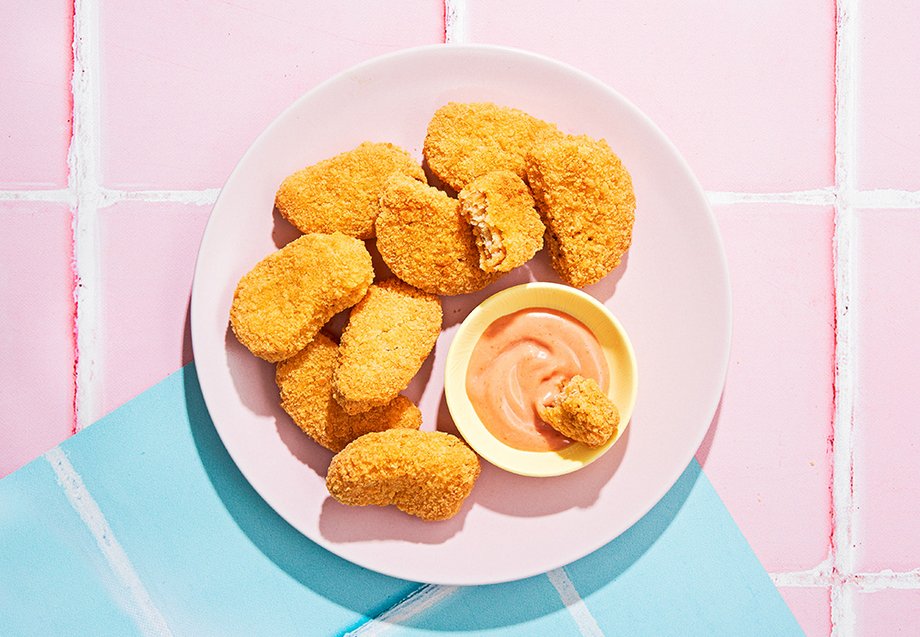
Climate change, war, inflation: the ever-faster succession of political and economic crises is currently demanding a lot from people. Dr Robert Kecskes from GfK explains in an interview what this means for sustainable consumption and retail - and why doing without cannot be the solution.
one: Dr Kecskes, in your epilogue to the joint study by CPS GfK, the DNP and the REWE Group, you drew the following conclusion: "Consumption will undoubtedly be more sustainable in the future, because the climate crisis will leave us with no other choice. The question is therefore not whether, but with what momentum, more sustainable consumption will expand."In your opinion, what is currently slowing down sustainable consumption? Robert Kecskes ©Reinhard Rosendahl
Robert Kecskes: The slump in prosperity that people felt after the Ukraine crisis resulted in an immediate change in purchasing behaviour, which we can clearly see in the study and should come as no surprise to anyone. After all, we have all witnessed rising consumer prices and falling real wages. As a result, the willingness to spend more money on organic, regional products and more sustainable packaging has decreased in 2022 and also in 2023, in some cases very significantly. In previous years, sustainable consumption had increased significantly in all dimensions among all household types. However, in my opinion, the reason why things are not progressing so quickly at the moment lies elsewhere: we are experiencing massive struggles for recognition at a societal level. And the elites in our country are partly responsible for this.
Robert Kecskes ©Reinhard Rosendahl
Robert Kecskes: The slump in prosperity that people felt after the Ukraine crisis resulted in an immediate change in purchasing behaviour, which we can clearly see in the study and should come as no surprise to anyone. After all, we have all witnessed rising consumer prices and falling real wages. As a result, the willingness to spend more money on organic, regional products and more sustainable packaging has decreased in 2022 and also in 2023, in some cases very significantly. In previous years, sustainable consumption had increased significantly in all dimensions among all household types. However, in my opinion, the reason why things are not progressing so quickly at the moment lies elsewhere: we are experiencing massive struggles for recognition at a societal level. And the elites in our country are partly responsible for this.
one: Can you give us an example of this?
Robert Kecskes: The 'elites' accuse 'ordinary people' of living according to the motto "first the food, then the morals". This is despite the fact that there are many people who want to consume more sustainably and make an effort to do so - even if it doesn't always work. This is a massive withdrawal of appreciation that leads to people saying at some point: I'm already doing so much - if that's not enough, then I'll just stop doing it altogether. Exhaustion and tiredness set in.
I see that as one of the biggest challenges at the moment: People are tired and exhausted, they have to constantly adapt to new things. They are worried about their financial situation and that of their children. They are trying their best. And then the 'elites' from the consumer economy, politics and other areas come along and raise their fingers - that exhausts people and leads to reactance*.
one: So in your view, more recognition is needed for efforts to achieve a more sustainable way of life?
Robert Kecskes: Exactly. It's certainly objectively true that we need to do more to protect the planet. But it won't work by always saying "you're too slow, you're too slow". We first need to provide positive encouragement: 'That's great what you're doing and we'll support you in making progress. We often discuss responsibility from a position of privilege. I can afford sustainable consumption, most people around me can afford it. But that's not the majority, and we should be aware of that. Many people have completely different problems in their everyday lives, and we should recognise that. And retailers and manufacturers need to work harder on building trust with consumers.
one: In what way?
Robert Kecskes: Consumers must be able to rely on the fact that what is promised will be honoured. Why should a consumer - to put it very provocatively - go to a lot of trouble and be loyal if a manufacturer then tries to impose a different price through shrinkflation and the like? That makes people angry. Studies show that although many people are still willing to pay a little more for more sustainable packaging, this willingness has been declining since 2020. At some point, consumers ask themselves: why should I actually have to pay for it, why can't the manufacturer or retailer bear some of the costs? This needs to be done and communicated in a positive way. We have a social responsibility that can and should be fun. It should also offer good flavour and quality. But it costs more - and that shouldn't be completely passed on to the consumer. ©Getty Images Sonja Rachbauer
one: Is that how consumers feel?
©Getty Images Sonja Rachbauer
one: Is that how consumers feel?
Robert Kecskes: Yes, many people no longer trust the industry. They can certainly understand a justified price increase, as they can see from their own gas bill that costs are rising overall. However, they believe that the situation is being exploited and prices are being increased excessively. Let's take a look at the current situation: producer prices in Germany have recently fallen significantly. Energy in particular has become cheaper. However, food prices have continued to rise, although people actually expect the price increases of recent years to be reversed and prices to fall. However, they did not see this for a long time, and for them this is an indicator that manufacturers are taking advantage of the situation. In the form of: Oh, people get used to everything, including higher prices, we don't have to take them back. More trust needs to be restored. This is crucial in order to create something like a sense of optimism again, which has disappeared since the outbreak of war in Ukraine. Today, after the first quarter of 2024, we can see that something is moving. Prices, especially for private labels, are falling again in some cases. This is putting manufacturers under pressure once again.
one: In the study, you write that price is a tool to support the market, but is not enough to really drive sustainable consumption. What else is needed beyond that?
Robert Kecskes: We need a positive narrative for the future. According to a survey conducted by the Hamburg Foundation for Future Studies in 2022, 56 per cent of adults up to the age of 34 in Germany would rather live in the past than in the future. In 2013, the figure was only 30 per cent. That's quite a statement. They don't want to go back to the old world without mobile phones and digitalisation, but when they look to the future, that's where the fire is and that's not where they want to go. I am convinced that we can make the sun rise again on the horizon and motivate people to drive change.
one: What could this positive future narrative look like? What does it need?
Robert Kecskes: For retailers, for example, this means creating a concrete vision of the product range and food of the future and also allaying fears. Many people currently only think that we will have to do without - that there will be no more meat or milk, for example. Of course there will still be in the future! But produced under different conditions. ©Getty Images ViktorCap
©Getty Images ViktorCap
one: Why do you think so many people react negatively to the concept of renunciation?
Robert Kecskes: I recently read a term by the philosopher Eva von Redecker that describes it quite well: she calls it "phantom possession pain". It always sets in when you believe you are being robbed of something you are entitled to. This can be transferred quite well to food and consumption: the currywurst is a good example, as a big debate broke out in 2021, in which even former Chancellor Schröder took part because people were afraid that the currywurst would now be taken away from them too. But that's rubbish. Currywurst will continue to exist, but perhaps in the future, today's cheap currywurst from farm level 1 will be the most expensive because it is the most harmful to the environment, and we will have a much more environmentally friendly, affordable version. I would like to see more positive images, not always talk about doing without. So that people don't just say: nowadays you don't even know what you're allowed to say ..
 ©Getty Images Kzenon
one: ...or are allowed to eat.
©Getty Images Kzenon
one: ...or are allowed to eat.
Robert Kecskes: Exactly. Many people have the feeling that their food is being stolen from them. That doesn't feel good and they don't get involved. We can only counter this if we show that the fear is unfounded. Instead, a culinary yet sustainable world awaits us if we tackle it together. To do this, we need to create concrete images so that people say: yes, I find that attractive, let's look together at how we can get there.
„Every company has a social responsibility to help save our planet. But this is not at odds with economic success.“
Robert Kecskes, GfKone: Doesn't this also require an incentive for trade and industry?
Robert Kecskes: Of course, every company must contribute to saving our planet, that is a social responsibility for sustainability. But this is not at odds with economic success. Quite the opposite. I believe that the economic success of the future lies, among other things, in alternatives to the production of animal-based foods or more plant-based foods - in short, a "planetary health diet".
one: What do you mean by a "planetary health diet"?
Robert Kecskes: A diet that protects the health of people and the planet in equal measure. We are faced with the challenge of how we can feed ten billion people without over-exploiting the planet's resources. Those who contribute to the solution will also be economically successful in the long term. On the way there, price reductions will be needed from time to time, there's no question about that. This is a ripple effect. But the wave is rising towards more Sustainability, towards fully planetary nutrition. I am certain that economic success and the implementation of sustainability standards will go hand in hand.
There's a saying in retail: consumers vote with their feet. What does it take for more sustainable products to be bought by the masses and not just by a small bubble of privileged people, as we mentioned at the beginning? Apart from the price
„I think retailers would do well to emphasise the joy of life, enjoyment and fun, and let the topic of Sustainability go hand in hand.“
Robert Kecskes, GfK
Less moralising and more focus on enjoying life. Many people have the feeling that they are already doing enough and they can't do any more because they are at the edge of their possibilities, both economically and mentally. I think retailers would do well to prioritise the joy of life, enjoyment and fun, and let the topic of Sustainability run alongside it as a matter of course. Get out of the dystopia. Not always hearing about everything that is bad, but a positive spirit in the sense of: We now have the opportunity to shape the future. And then people will be prepared to pay a higher price for as long as they can.
one: However, we also see in the study that more and more households have less and less money at their disposal. Against this backdrop, where do you see the role of the discounters, who have to respond to this?
Robert Kecskes: Discounters can be an important link to people who want to, but perhaps can't always. If we look at the history of organic, for example, it was the discounters and private labels that brought organic into the mainstream. Before that, organic didn't catch on for a long time. And then retailers came along and communicated this to customers: You can get healthy and sustainable products from us at a price you can afford. The message that resonates is that good, healthy products are not just for the elite and the rich, but for all sections of the population.
one: Do you notice that people who can afford a lot or almost everything consume disproportionately sustainably?
Robert Kecskes: We do see that people who can afford a lot spend more money on sustainable products - because they can. But this does not necessarily increase in proportion to income. Private labels, for example, are relevant for all income groups. The more decisive factor is often the level of education. So if we want to promote more sustainable consumption as a society, we need to start there: What do children learn about nutrition in kindergarten and school? Are we not only teaching them knowledge, but also making it fun?  ©Getty Images Mila Bond
©Getty Images Mila Bond
one: Surveys show that many people feel they can no longer judge what a more sustainable product actually is.
Robert Kecskes: That's a very big problem. I think two points are essential here: Firstly, once again, the issue of trust. Can customers rely on the fact that what is advertised on a product is actually delivered? The second point is: what is sustainable, or more sustainable? Many people don't adopt a completely sustainable diet overnight, but gradually become more sustainable. There must be various reliable options for this. For example, I believe that the labelling of animal husbandry is very comprehensible.
one: Are more legal standards the solution?
Robert Kecskes : They can be part of the solution - but so can industry initiatives. Anything that creates a uniform standard. It would move the whole discussion forward if retailers and manufacturers pursued common interests and set a minimum standard that is constantly being raised. This is already happening successfully in some cases.
one: Does the study give you any cause for hope when you look at the results?
Robert Kecskes: I am definitely an optimist. Not in the sense that I say everything will be fine, we just have to wait. Rather, I believe that we have every opportunity to change the world. The younger generations, for whom many questions of 'planetary' nutrition are on the agenda as a matter of course, will shape a great deal. The very young generation is angry at what the older generations are leaving them, the millennials, a little older and much quieter, but just as committed as the young, are moving into positions where they can influence a lot of things. Eating less meat, more plant-based alternatives - that will be mainstream in 20 years' time. That gives me hope. However, we shouldn't make the mistake of dumping all the responsibility on them. If we want to turn the dystopia into a utopia, we all have a role to play. The older generations must overcome their phantom ownership pains.![]() ©Getty Images Rawpixel
©Getty Images Rawpixel
About the person
Robert Kecskes is Senior Insights Director Germany at Consumer Panel Services GfK.
*inner resistance to restrictions due to external pressure
